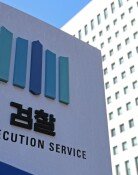US Engages North Korea Holding Missiles in Check
US Engages North Korea Holding Missiles in Check
Posted May. 11, 2001 09:19,
Deputy U.S. Secretary of State Richard Armitage left both hopes and burdens during his visit to Seoul.
The support for the "engagement policy" of President Kim Dae-Jung and the plan to resume the dialogue between North Korea and the U.S. will contribute to the substantial progress in the NK-US relations and inter-Korean talks. At the same time, he called for an understanding and support of South Korea about "strategic framework" and the Missile Defense, which could be a massive burden on us.
The government officials evaluated positively to the President Bush’s remarks in the letter to President Kim that he supports strongly the engagement policy of President Kim, and how U.S. policy toward the North would reflect, as closely as possible, Kim`s opinions. Good atmospheres and basic foundations to simultaneously progress the NK-US relations and the South-North relations have been established. The government kept emphasizing the concurrent progress of these two relations.
In particular, if the U.S. resumes talks with North Korea in June after ending a review of the North Korea policy at the end of this month, then the South and North governments are expected to restart various talks including talks in Prime Minister level, talks in Minister of Defense level, and Red Cross talks.
If talks between South and North is proceeded as expected, then the South-North relations could advance to a stable phase, and in turn, good atmosphere for Kim Jong-Il`s visit to Seoul will be created.
However, some are skeptical that the resumption of the dialogue between North Korea and the U.S. will directly lead to the progress of inter-Korean relations. Even though the U.S. outlined its policy toward North Korea supporting the "engagement policy," details of the policy are yet to be known.
Furthermore, the concept of "counterproliferation," a element of new "strategic framework," is primarily interpreted as a sign to North Korea that the U.S. will vigorously be involved with issue of weapons for mass destruction.
Jung Young-Seok, professor of Dankook University, said that ``Even though NK-US talks start again, there can hardly be any change in the principles of probe and mutualism that the U.S. administration has maintained.``
Yoon Duk-Min, Professor of the Institute for Foreign Affairs and National Security (IFANS) also said, "The U.S. government seems to resume talks with North Korea as a provision for possible problems that may come about in the relations with China and Russia as if the U.S. is attempting to buy time to persuade China and Russia through the resumption of talks with North Korea."
Lee Jong-Suk, research fellow at the Sejong Institute, said, ``The U.S. government has treated North Korea as "rogue state" for the pursuit of the MD plan, rather than attempting to genuinely talk with the North. Therefore, the resumption of talks with North Korea implies that the U.S. took a two-track approach in which the MD plan is compatible with the NK-US talks.
Through Armitage’s visit to Seoul, the U.S. presented the outline of its policy toward the North that supports the South’s endeavor to soothe the tense environment in the Korean peninsula. But it is too hasty to view that the relationship between North Korea and the U.S. will progress swiftly as it did during the Clinton administration, because the hard-line policy may emerge again within the U.S. in spite of the resumption of the NK-US dialogue.
Kim Young-Sik spear@donga.com



![[단독]이혜훈 “장남 다자녀로 연대 입학”…당시 그런 전형 없었다](https://dimg.donga.com/c/138/175/90/1/wps/NEWS/IMAGE/2026/01/23/133215083.1.jpg)
![하버드 의사가 실천하는 ‘뇌 노화 늦추는 6가지 습관’ [노화설계]](https://dimg.donga.com/c/138/175/90/1/wps/NEWS/IMAGE/2026/01/22/133210626.3.jpg)


